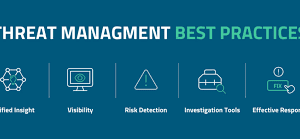In a recent research survey it was found that more than half of the respondents indicated that tab clutter is a problem. Findings in the research indicate tab clutter can be problematic due to two main reasons:
- Firstly, knowledge workers may feel pressured to close their tabs, possibly to help them focus better, or to prevent battery drainage when working on laptops.
- Secondly, knowledge workers may feel pressured to keep tabs open for fear that they may lose reminders of unfinished tasks and information, which may lead to another time consuming session of fact-finding and information organizing.
In general, the research authors note, the issue boils down to two opposing forces: keeping tabs open, or closing them. Typed is no stranger to innovation and has recently raised $2.5 million in seed round funding, led by Mirae Asset along with the participation of Kakao Ventures and Nextrans Inc, to accelerate the global launch of its document-based knowledge management platform. The platform itself offers an intuitive, streamlined approach to the digital workspace, helping to eliminate tab clutter and boosting efficiency in the process.
A User-friendly Digital Workspace
Designed to streamline document knowledge management, Typed aims to solve the challenge that knowledge workers could inevitably face: spending more time on research and organization than on content creation. The solution Typed presents is a network that intelligently tracks and organizes files based on the user’s interaction with them, bringing all the knowledge from different web pages and applications into one user-friendly digital workspace.
“Modern document writing has not changed since the 1980s,” Typed co-founder Clint
Yoo states. He continues, “While we have more knowledge at our fingertips than ever before, we use the same rudimentary methods to organize and make sense of it. At Typed, we want any writer — from lawyers and entrepreneurs to researchers and students — to focus on creating great content instead of wasting time organizing their source material. We’ve achieved this by making knowledge management more similar to the way our brain operates.”
The Potential to Change How We Work
“Workplace disruption is a phrase often said but rarely executed well,” Shina Chung,
CEO of Kakao Ventures notes. “While still early in its development, Typed has the potential to fundamentally change how we work individually or as a team. If there is a team to take on our outdated way of writing content, it’s them.”
“Typed merges research and writing into a single activity by automatically curating the relevant information I need to write. Not only is it time-saving and extremely easy to use, but it dramatically improves my thought process by helping me connect ideas in a new way. It has indeed been a game-changer for my team and me,” said Eamonn Carey, managing director at Techstars London.
Since the launch of the closed beta test in February 2021, Typed saw significant user growth, including well over 10,000 users on the waitlist and 25,000 files uploaded. Moreover the platform has seen a staggering 350% month-over-month active user growth. The platform will be available through a freemium model and is currently accepting beta registrations on its website.
About Typed
With a vision to lead the paradigm shift of human knowledge, Typed is reimagining how knowledge workers and writers bring their content to life with an easy-to-use digital workspace. Founded by Woojin Kim, Brian Shin, Minwoo Cho, and Clint Yoo, Typed is headquartered in Seoul, South Korea, with offices in Santa Clara, California.
The platform offers users distinct advantages. Users can collect and organize online sources with Typed’s Web Clipper, accessing it with a mere click of the mouse. Furthermore, a flexible split screen view along with functionality to link multiple documents with common context through an innovative backlink feature are among the most prominent features of the platform.
The platform intends to introduce two new features soon. Using Typed’s Second Brain technology, the platform will recommend resources to the user, which can dramatically cut down research time. Furthermore, with the introduction of a unified search users will gain immediate insight into all their research across every platform.
A Few Final Words
Browser tabs have existed since the late 1990s, yet the technology has changed little since. Today, the method is ubiquitous across browsers, but this way of storing information is not quite keeping up with the sheer amount of web pages Internet users can access, which makes platforms like Typed a breath of fresh air.



































